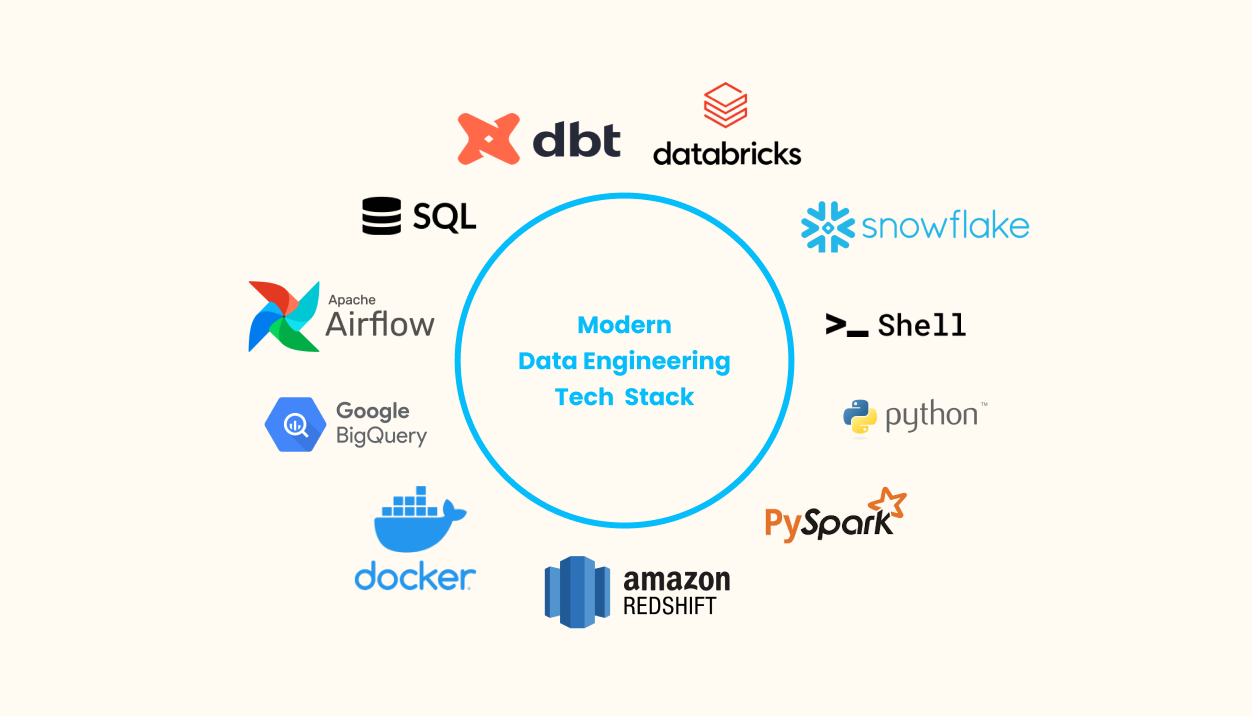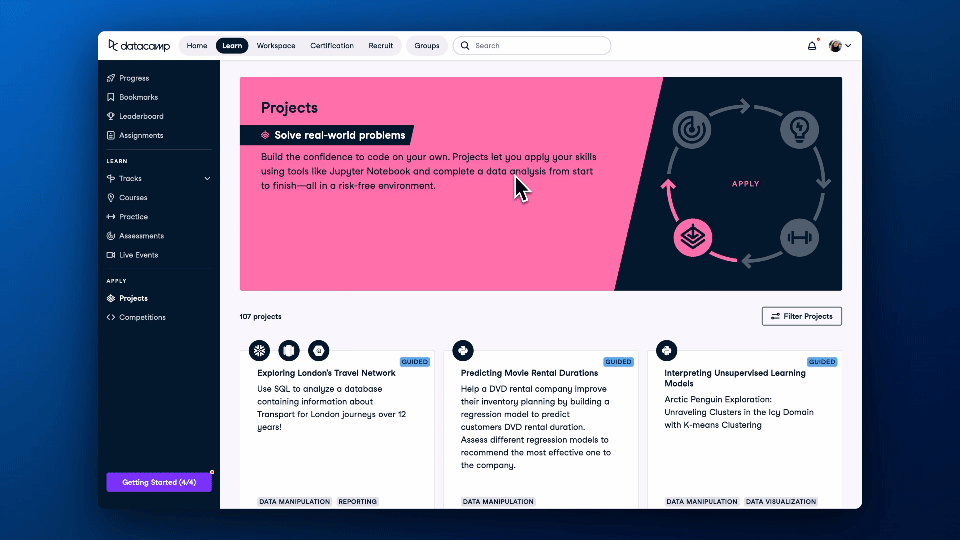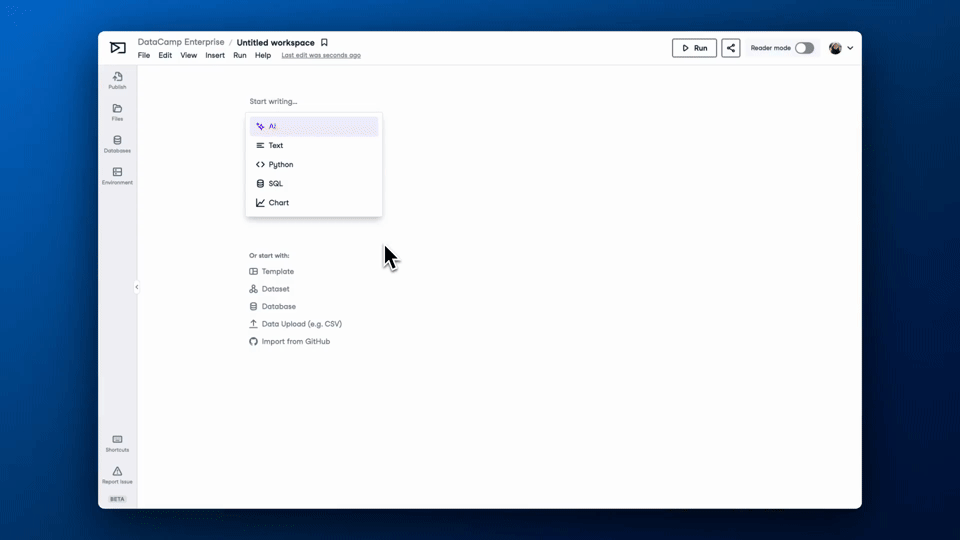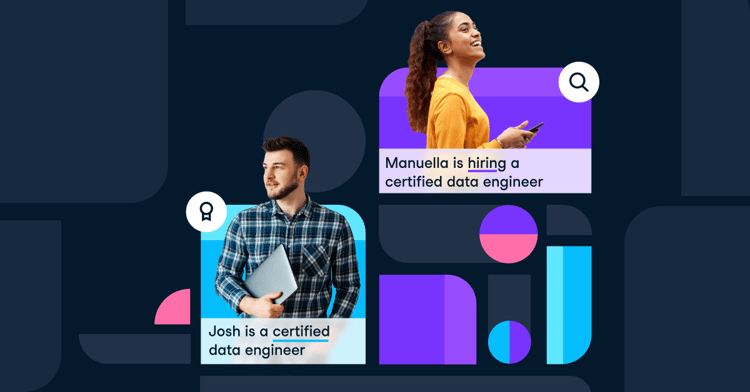DataLab
Skip the installation process and experiment with data science code in your browser with DataLab, DataCamp's AI-powered notebook.
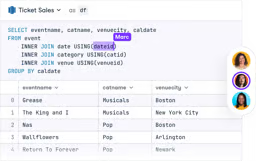
Practice Data Engineering Skills with DataCamp
Try our introductory project 'Exploring London's Travel Network' and practice your Snowflake, Google BigQuery, and Amazon Redshift skills.
Start your Journey to Become a Data Engineer
Introduction to SQL
BeginnerSkill Level
2 hr
721.1K learners
Topics
